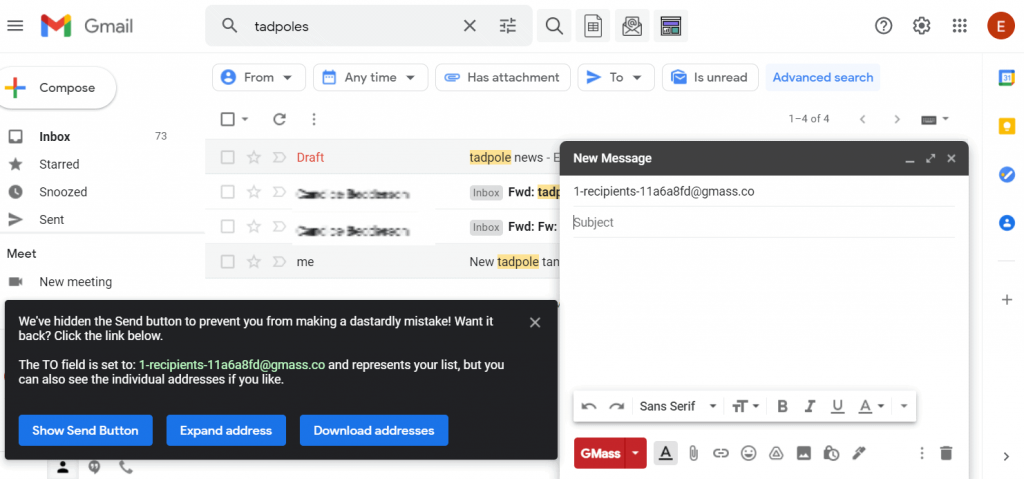To ensure the best results, it is important to think about a number of aspects. This includes whether or whether the list is accurate, legal, and relevant to you marketing goals. Here are the key considerations:1. Quality of data and accuracy
Source of Data: Confirm whether the email list provider uses reliable sources. These include medical directories and professional directories. Hematologists can opt-in to receive emails once they've verified their consent. The validity of the list depends on how accurately the contacts were collected.
Verification and Updates: Contact the provider to inquire about the provider's data verification process. Email addresses must be checked to remove any invalid or inactive addresses. Regular updates are important to ensure that the list is accurate, as healthcare professionals could change positions or work in different institutions.
Specialization and Segmentation: Be sure that your list is tailored to hematologists. It could be further segmented, for example by subspecialty (e.g. pediatric hematology, oncology) or locations, years of experience, or hospital affiliation. Segmented lists allow you to better tailor your efforts.
2. Conformity to Legal Regulations
Data Privacy Laws – Ensure compliance with the data protection laws in place, including the General Data Protection Regulations (GDPR) for Europe and the California Consumer Privacy Acts (CCPA) for the U.S. and other applicable laws. That means that email addresses have to be gathered with proper consent.
CAN-SPAM Act: When you're in the U.S., ensure the list of recipients is in compliance with the CANSPAM Act, which regulates commercial email communications. Non-compliance with the CAN-SPAM Act can lead to penalties. Furthermore, your email might be marked as spam.
Opt in Consent: Only include Hematologists who have explicitly consented to receiving emails from other organizations. The sending of unwelcome emails to individuals without their consent can have an adverse effect on engagement, and may even result in legal issues.
3. Provider Reputation
Reputable Provider: Study the reputation of the listed provider. Look through testimonials, reviews and case studies to find an honest company. A well-established business that has a history of delivering top-quality and accurate data is more likely.
Transparency: Select a provider who is transparent regarding the source of data. Avoid providers who are unclear or vague about the method they use to collect data.
Customer Support - It's important to choose a provider who offers excellent customer service. Support is crucial for those who require help with technical queries, adjusting your list, or compliance issues.
4. Cost and Return on investment (ROI).
Pricing Model: Take a look at the pricing structure offered in the form of pay-per-contact or flat fee. Check that the price corresponds with the potential ROI. Also, consider balancing the quality of your list and the quantity with the marketing budget.
Refund or Replacement policy A reputable provider will offer refunds or replacements for incorrect or outdated email addresses. Clarify all terms and conditions of the policy before making any purchases.
Value for Money Comparing list features like segmentation options and data accuracy guarantees together with the price. If the quality of data in the list is poor the list with the lowest price may not be the best choice.
5. Ownership of data and use
The distinction between a single-use and a multiple-use email list. Multiple Use: Learn the usage guidelines for email lists. It is possible to utilize the email list only for one campaign with some companies, however others allow unlimited usage.
Exclusive vs. Lists that are Shared: Determine if your email list is private or shared. Exclusive lists have a higher percentage of engagement because the list members are more likely to not receive numerous marketing emails.
6. Data Integration and Format
Integration with CRM or email Tools: Make sure that the email list is easily connected to your CRM or email marketing platform. For easy integration the list must be in a common format, such as CSV or Excel.
Usability: Check how easy it is to manage and filter the list. Lists that contain a lot of data that are difficult to use or segment can decrease the effectiveness and efficiency of your campaign.
7. Ethical Questions
Relevance for Hematologists Be sure that the email you send out is appropriate for doctors. Not sending them content that does not correspond to their expertise could cause poor engagement and may negatively impact your brand.
Avoiding Spam Methods: Try not to overwhelm recipients with too many emails. If you send out too many emails, it can damage the reputation of the email sender.
The article's conclusion is:
Buying a hematologist email list could be an effective instrument for targeted marketing but it requires careful evaluation. To ensure a reliable, accurate and efficient list, you should take into consideration the accuracy of the data and the level of compliance with privacy laws. Making sure you are focusing on ethical marketing, and segmentation will help you maximise your profits while maintaining your brand reputation. Read the top rated hematologists email list for more guide.

When Buying An Oil Industry-Related Email List There Are 10 Things To Keep In Mind.
When you purchase an email list to be used in the oil and gas industry, it's crucial to think about a number of factors to make sure the list is of high-quality specific, specialized legal and legal. These are the top 10 things to think about:
1. Relevance to the target audience
Industry Focus: Ensure that the list of email addresses is targeted specifically to the gas and oil industry. A well-segmented list should include professionals such as engineers and geologists, as well as operational managers, as well as decision makers in upstream, midstream, and downstream processes.
Find job titles and roles that include the right key decision makers in the company you are targeting (executives or managers, engineers). You can target specific companies.
2. Review of vendor and source sources.
Reputable suppliers: Only purchase from trusted and reputable email list providers that adhere to the best practices in data collection. Beware of sources that have a questionable source since they can lead to poor-quality data or even legal problems.
Data Quality - Research Reviews and testimonials that can be used to gauge the credibility and quality of a list service.
3. Quality and Freshness of the Data
Data Age: This list should contain the most current contact details. The staff of companies that deal in oil and gas is constantly changing, and this could result in outdated contact information.
Verification Process: Make sure your vendor is updated and frequently reviews their contact list to identify those that are not responsive or incorrect.
4. Conformity with Regulations (GDPR and CAN-SPAM etc.)
Legal Compliance: Make sure your list is compliant with local and international regulations such as GDPR, CAN-SPAM and many others, that govern the use of personal data. Non-compliance will lead to serious penalties and legal risk.
Opt-in Process: Determine that the email address in the list was obtained with the consent of recipients, i.e. they've chosen to be notified of messages.
5. Segmentation & Customization
Custom Segmentation. Top list providers will provide options for segmentation according to specific criteria such as the location, the role of the company, size of the business or subsector of oil and gas.
Custom Filters: Based on your campaign objectives you can customize the list of filters based on criteria such as geographic area or size of the business, or your specific needs.
6. Deliverability Rate
High Deliverability Rates A well-designed list of email addresses will come with excellent rates of deliverability (normally 95 percent). Ineffective bounce rates on lists can have a negative impact on your marketing email and the sender's reputation.
Try the list out and ask for measurements.
7. Volume Vs. Qualitative
Quality over Quantity: Ensure the list isn't simply large in volume but also extremely targeted and accurate. A smaller, but highly-quality mailing list is more effective than one that's big and generic.
Engagement Metrics Prioritize engagement metrics above contacts. An engaged audience will be more likely respond.
8. Cost structure and pricing
Transparent Pricing. Learn the pricing structure of the list, regardless of whether you're purchasing it for the first time or on a monthly basis. Beware of low-cost, expensive lists. They may not be of high quality or value.
Return on investment (ROI). You can compare the price of the list with anticipated conversion rates to get an idea of ROI. Sometimes paying a premium for a list that is specifically targeted will be more economical in the long run.
9. Data Privacy and Security
Check that the provider adheres to strict data protection practices. List providers should ensure that personal data is secure against unauthorized access.
Confidentiality - Make sure the service does not share or resell information. This is crucial in the event that you require security and confidentiality for your business.
10. After-sales Customer Support
You should be able to contact the vendor for support on a regular basis in case you require assistance with your list, or if there are any problems.
List Replacement Guarantee: If there are any there are issues regarding the list (e.g. inaccurate information or insufficient delivery) the best provider will offer replacements or refunds.
Consider these factors to ensure you're purchasing the right oil and gas list of email addresses that is effective, compliant and geared to your goals for business. View the top rated oil and gas industry email list for site examples.
